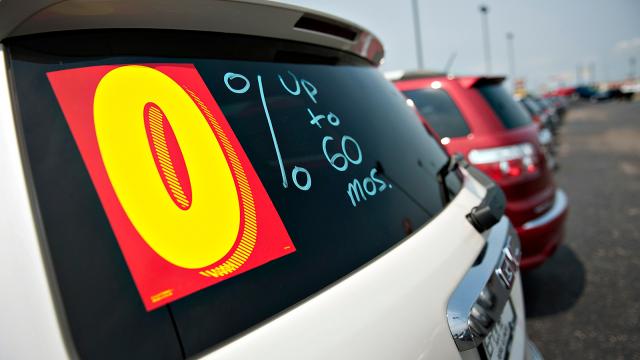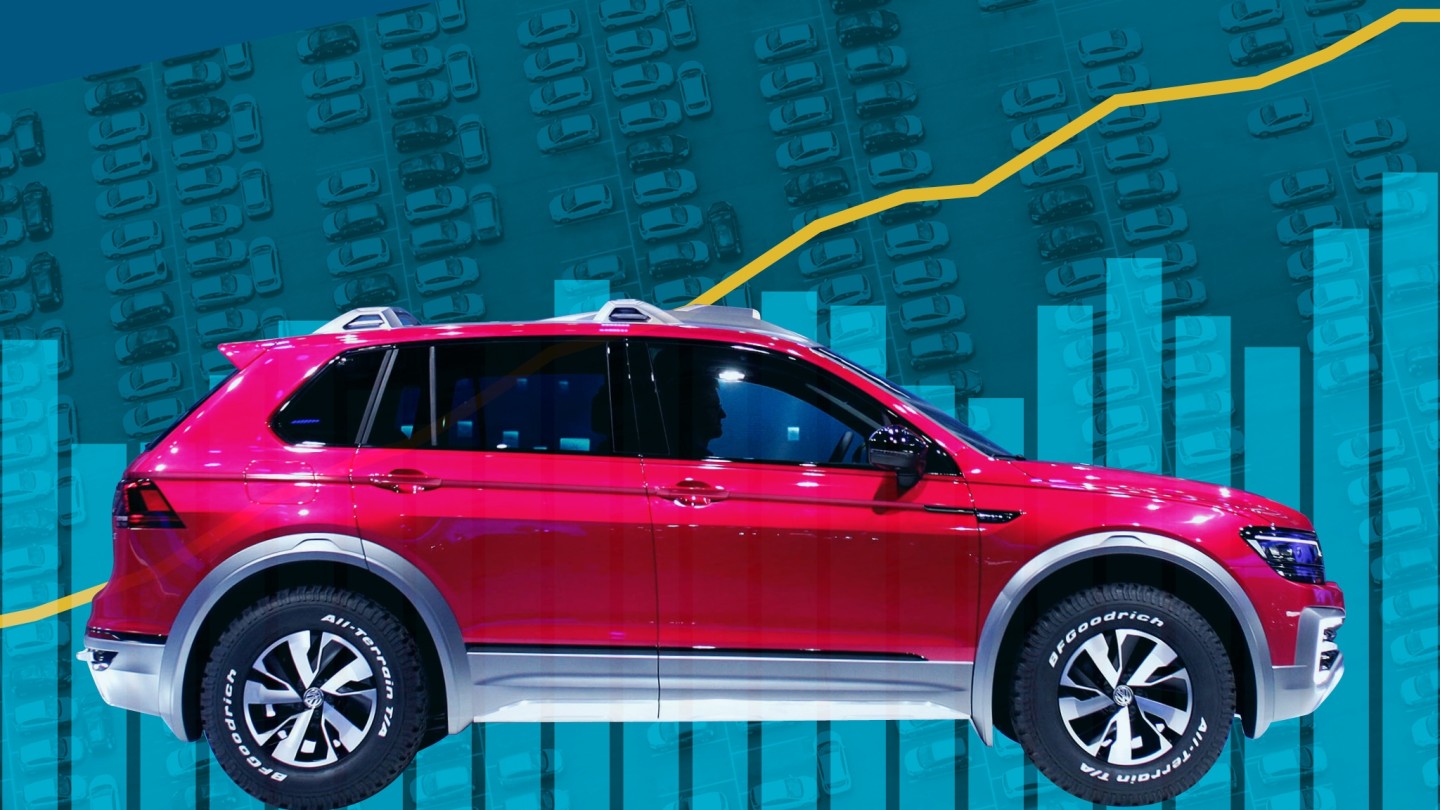
In the latest report showing widening economic inequality and a troubling sign for the U.S. economy, the Federal Reserve Bank of New York earlier this month announced an uptick in delinquent auto loans for subprime borrowers – to be precise, a 60 percent increase since 2012.
The Fed’s report revealed an increase in prime borrowers – those with credit scores above 620 – and a decrease in lending to subprime borrowers. But even with this trend, auto loans delinquencies have risen, a foreboding sign for the economy.
“The overall performance of auto loans has been slowly worsening, despite an increasing share of prime loans in the stock,” the report said.
The news come amid the latest jobless rates showing 4.1 percent unemployment and a stock market that rebounded in January from a 10-year low. Still, for many economists, the news about the rise in auto loan delinquencies didn't come as a surprise.
“I’m surprised at how surprised the news reporting has been for this story. This is a trend I imagine will continue for the foreseeable future,” Fordham University economist Dr. Giacomo Santangelo told Occupy.com.
Other economic reports consistently show that while the U.S. economy as a whole is strong, the gains haven’t been felt by a large segment of the population. A May 2018 report from the Federal Reserve showed about 40 percent of American adults did not have $400 in savings to cover an emergency, and 25 percent of adults under 30 received some form of economic assistance from outside their home.
Subprime borrowing hit an 11-year low in December 2018, tilting the pool of auto-loan borrowers towards prime borrowers. Prior to this, subprime auto-loan borrowing had been on the increase since 2009. The majority of these loans are issued by auto finance companies, not banks or credit unions.
To be sure, the amount of subprime auto debt is far less than the amount of subprime home mortgage debt just before the 2008 recession. But the trend is nevertheless troubling to some economists.
“We have long past a point where we as a nation can support debt on a national, local or individual level, and people are waking up to that,” Santangelo said.
If the current trend continues, its effects could move beyond the subprime section into the larger economy, he added.
“At some point, we’re going to have a credit event, whether it’s this or student loans, where the government is going to have to step in, and it’s going to affect us all.”
Finding alternatives to car ownership is not a viable option for many. The U.S., once a hub for public transportation in the late 19th century in its exploding urban areas, intentionally moved away from public transportation development and focused funding on building the interstate highway system after World War II.
Americans traveling from coast to coast are far more likely to take a car than a train, with the most recent U.S. Department of Transportation data showing 4.5 million highway miles traveled compared to 56,000 miles by public transit.
In many parts of the country, public transportation is not accessible or adequate. Data from the American Transportation Associationshows a decline in 2018 in public transit ridership and just a 12 percent increase since 1990, despite efforts to reduce carbon emissions and bipartisan congressional support to increase infrastructure spending.
Many states have no funding dedicated to public transit development. Even in major metro areas like San Francisco, public transportation can be unreliable despite public officials actively seeking to promote public transportation options.
Cars have been an integral part of American identify going back to the 1920s when Henry Ford’s innovation allowed for the average middle class American to own a car. The car has long been a symbol of American freedom and independence. For poorer Americans, though, there often isn’t a viable alternative; cars are typically the only reliable source of transportation to get to work.
“Car-dependent places are considerably less affluent. Metros in which a higher share of people depend on their cars to get to work are poorer, and those where more people use transit or bike or walk to work are considerably more affluent,” stated a City Lab report.
Left with no other options, poorer Americans often turn to subprime borrowers whose auto loan rates are higher for those with poor credit scores. Defaulting on these loans though can have a crippling effect as consumers become weighed down with more debt and lose the car due to default, then can’t access credit to obtain another vehicle.
“Lower income people need a car to work. When you put these people into these loans, it’s quicker to fall into poor credit,” Eric Poe, chief operating officer of the non-profit CURE Auto Insurance, told Occupy.com.
Oftentimes, low credit scores are viewed as sign of a lack of responsibility, and not paying bills on time is the biggest – but not the only – factor. “People think credit scores are a measure of how responsible you are. That isn’t true. Debt utilization is the second most common factor in credit scores,” Poe said.
Once the symbol of a vibrant American middle class, not to mention the primary source of transportation for most people, the costs of owning an automobile have changed the equation. With income inequality greater now than it has ever been, cars have become – like homes themselves – a necessity out of the affordable reach of many. And ultimately the U.S. economy will pay the price.












